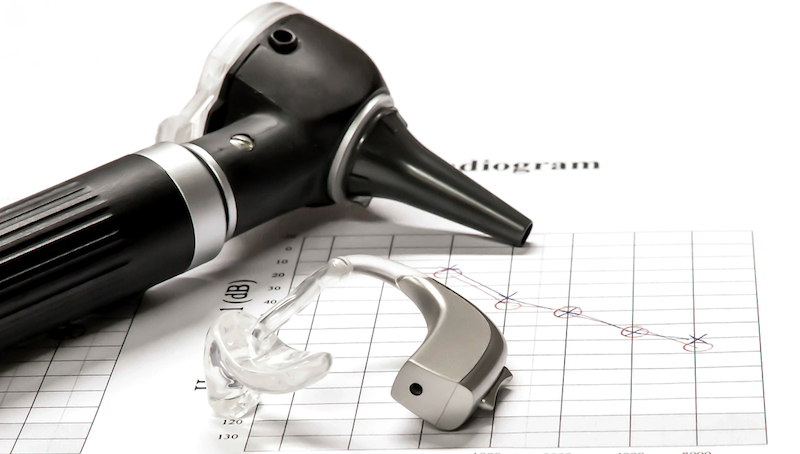Hearing loss is one of the most common health issues in the world. In the United States, 12 percent of the population, or 38 million people, have a significant hearing loss. Yet, only one out of every five people who could benefit from hearing aids actually wears them. Reduced hearing acuity can not only be frustrating for yourself but also for those around you. Difficulties with your hearing can have an effect not only on your relationships but also on your mental and physical health, your income and your personal safety.
Recent hearing loss studies show a connection between hearing loss and dementia, depression, risk of falls and loss of earning potential.
There have been several hearing loss studies that connect hearing impairment to mental degeneration. They show an increase in anxiety and depression, accelerated brain tissue loss and dementia. People with a hearing loss are 2-5 times more likely to experience cognitive decline than someone with normal hearing. A study performed by Johns Hopkins Medicine tested volunteers with hearing loss over a six-year period and found their cognitive abilities declined 30-40 percent faster than peers with normal hearing. The researcher, Dr. Frank Lin, states that “if you want to address hearing loss well, do it sooner rather than later, before brain structural changes take place”.
Another study performed by Johns Hopkins Medicine displays the link between hearing loss and your physical health. In this study, researchers found that people with even a mild hearing loss are three times more likely to have a history of falling. One of the possible explanations for this link is that people who cannot hear well might not have keen awareness of their overall environment, making tripping and falling much more likely.
This lack of awareness can also be frightening when you are not hearing as well as you should. The inability to hear the sirens, vehicles and alarms in your everyday life can be very important. By treating your hearing loss with hearing aids, you will be able to enhance your consciousness of your surroundings.
Income and hearing loss have also been linked. A study performed by the Better Hearing Institute states that people with an untreated hearing loss can see an income hit of up to $30,000 annually. It also states subjects were nearly twice as likely to be unemployed as peers who wore hearing aids.
Helen Keller once said “Blindness separates people from things; deafness separates people from people”. Untreated hearing loss can lead to social isolation and depression. The decreased hearing acuity can often cause people to withdraw from family, friends and social activities that once brought them enjoyment. Treating your hearing loss with hearing aids enables you to hear your friends and loved ones and ensure you don’t miss out on the people and activities that make you happy.
Hearing loss is not just an ear issue — it’s a quality of life and health issue. These hearing loss studies prove it is important to take a proactive and empowered approach to health during every stage of your life. Let it begin with your hearing health.


